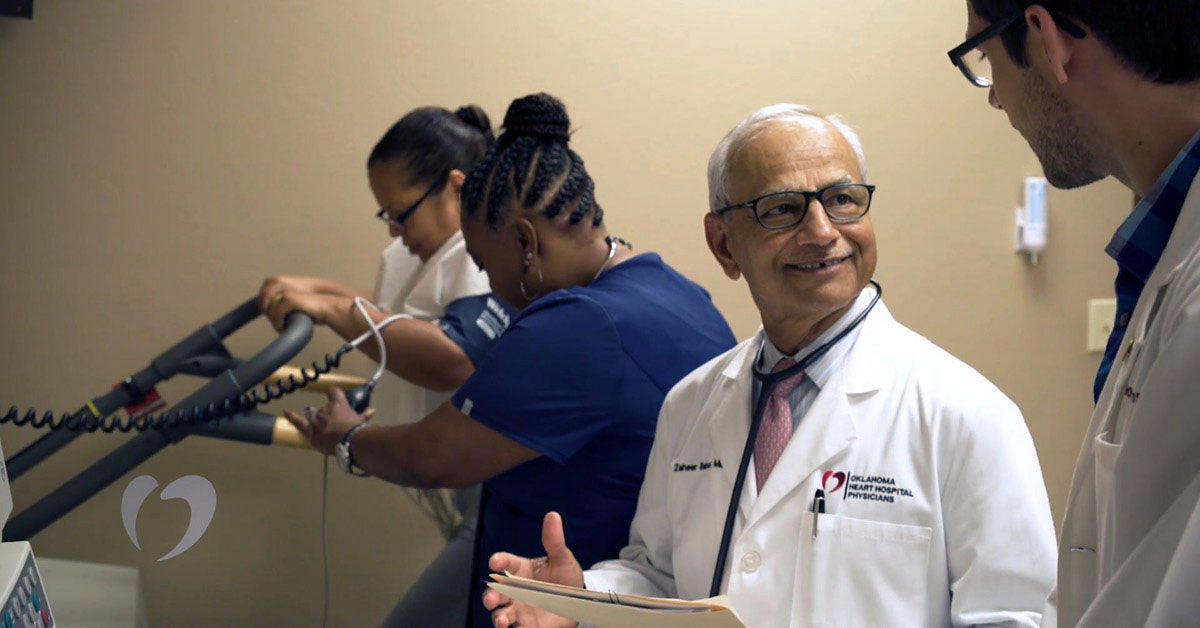What to Expect During a Cardiac Stress Test

Cardiac stress tests help doctors diagnose heart disease and serve as a tool for monitoring the effect of treatment on the heart’s function. The goal of these tests is to make your heart work hard enough to assess how it functions both while at rest and in motion, which provides a better overview for the doctor than an image taken only at rest.
Types of stress tests
Your doctor may order one of several types of stress tests. The standard stress test involves walking on a treadmill or riding a stationary bike. In the standard test, electrodes are placed on your chest for an electrocardiogram (commonly known as an EKG or ECG), and your heart rate and blood pressure will also be monitored. This will provide information about your heart’s function before, during, and after exercise.
For patients with mobility concerns or who physically cannot exercise, the doctor can order a chemical stress test. This test is monitored in the same way as a standard test, but specific drugs are used to stimulate the heart in lieu of exercise.
Your doctor may expand on the stress test by ordering extra types of imaging, such as ultrasound, before or after the exercise portion. Another option is a nuclear stress test, which involves using a dye to track the movement of blood through the heart. These tests are often done in conjunction with a standard stress test.
The day of your test
Your doctor will let you know any instructions for preparing for the test. Often, this may include not eating or not consuming caffeine before the test. Because you will be exercising, comfortable clothes and walking shoes are recommended.
The entire test will take about an hour, including prep and the imaging after the exercise. The exercise portion of the test is generally 15 minutes long. Before your test, the doctor will talk to you about your routine exercise and activity levels and do a quick physical exam to determine the level of exercise you can perform and any existing health issues that may affect the outcome.
During the test, electrodes are placed on your chest to monitor your heart activity. A cuff around your arm measures blood pressure. You will start slowly and gradually increase the intensity until your heart rate is elevated to a particular degree, or until you experience signs or symptoms that will immediately end the test. These include chest pain, shortness of breath, and abnormally high or low blood pressure. Dizziness and fatigue also are indicators to end the test early. After you elevate your heart rate, the doctor will continue to monitor you as your heart rate slows.
Risks associated with cardiac stress tests
Stress tests do include some potential risks. The test is generally safe, but complications do occur occasionally, including low blood pressure and arrythmias that often correct themselves after the test. On very rare occasion, heart attack can occur. During your test, medical staff will monitor you for signs of any complications.
Stress tests are helpful diagnostic tools for heart specialists. If you have any questions about your upcoming stress test, reach out to your Oklahoma Heart Hospital physician for more information.
